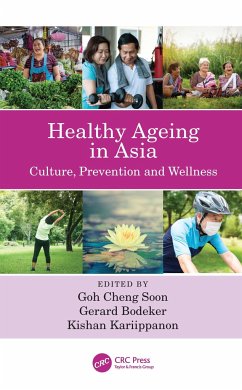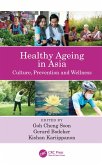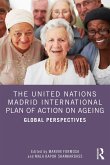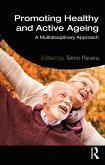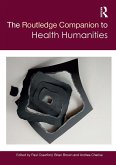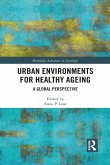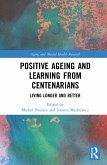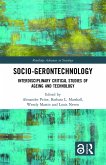Asia is the world's most populous region and has the highest per capita number of older people in the world. It is also home to the healthy ageing traditions of Ayurveda and Chinese Medicine and the rich regional traditions of Japan, Korea, Southeast Asia, and South Asia.
This book addresses policies related to ageing, traditional Asian approaches to ageing, an integrated medical system approaches to ageing, ageing in place, and community empowerment.
Features
Presents information on The 100-Year Life. As a counterpoint to focussing on the frail elderly, Japan is promoting the '100-Year Life Society', a societal model in which all citizens are dynamically engaged and productive throughout the lifespan to reach a healthy 100 years of age.
Discusses a framework for optimization of Ageing in Place or staying at home as this is a desired option for most older people.
Presents evidence for exercise andmovement in healthy aging with guidelines in different states of ageing.
Features information on how to improve mental wellbeing in cognitive decline, isolation and loneliness, poor nutrition, and reduced mobility.
Creates an understanding of loss and bereavement through processes and the impact of loss.
Provides information on developments in health technology to optimize efficiency, accuracy, and effectiveness of providers.
Details health insurance options including coverage for traditional as well as modern medical services, provides models for other countries in the region.
Lists coping skills or abilities to help older people to be more independent and in control of their lives.
Features information on Asian herbs, spices and foods in healthy ageing across the lifepsan and specifically in addressing age-related health issues.
"What is required is a new culture based on the science in which older people are expected to remain, or become increasingly active, physically, cognitively and emotionally maintaining or strengthening a strong sense of purpose. Europe is looking to Asia because this culture is more prevalent there than in Europe. The core theme is not one of 'caring' for a passive subset of the population but of promoting lifelong learning because knowledge is the elixir of life."
- Professor Sir Muir Gray, Founding Director, The Optimal Ageing Programme & Professor in the Nuffield Department of Surgery, University of Oxford
This book addresses policies related to ageing, traditional Asian approaches to ageing, an integrated medical system approaches to ageing, ageing in place, and community empowerment.
Features
Presents information on The 100-Year Life. As a counterpoint to focussing on the frail elderly, Japan is promoting the '100-Year Life Society', a societal model in which all citizens are dynamically engaged and productive throughout the lifespan to reach a healthy 100 years of age.
Discusses a framework for optimization of Ageing in Place or staying at home as this is a desired option for most older people.
Presents evidence for exercise andmovement in healthy aging with guidelines in different states of ageing.
Features information on how to improve mental wellbeing in cognitive decline, isolation and loneliness, poor nutrition, and reduced mobility.
Creates an understanding of loss and bereavement through processes and the impact of loss.
Provides information on developments in health technology to optimize efficiency, accuracy, and effectiveness of providers.
Details health insurance options including coverage for traditional as well as modern medical services, provides models for other countries in the region.
Lists coping skills or abilities to help older people to be more independent and in control of their lives.
Features information on Asian herbs, spices and foods in healthy ageing across the lifepsan and specifically in addressing age-related health issues.
"What is required is a new culture based on the science in which older people are expected to remain, or become increasingly active, physically, cognitively and emotionally maintaining or strengthening a strong sense of purpose. Europe is looking to Asia because this culture is more prevalent there than in Europe. The core theme is not one of 'caring' for a passive subset of the population but of promoting lifelong learning because knowledge is the elixir of life."
- Professor Sir Muir Gray, Founding Director, The Optimal Ageing Programme & Professor in the Nuffield Department of Surgery, University of Oxford
"What is required is a new culture based on the science in which older people are expected to remain, or become increasingly active, physically, cognitively and emotionally maintaining or strengthening a strong sense of purpose. Europe is looking to Asia because this culture is more prevalent there than in Europe. The core theme is not one of 'caring' for a passive subset of the population but of promoting lifelong learning because knowledge is the elixir of life."
- Professor Sir Muir Gray, Founding Director, The Optimal Ageing Programme & Professor in the Nuffield Department of Surgery, University of Oxford
"This book offers much to those interested in issues impacting our elders. It demonstrates the universality of the dearth of adequate and appropriate science-based models for facilitating the promotion of living longer better rather than simply being a passive recipient of care." - Anna A Helm, Multnomah County
- Professor Sir Muir Gray, Founding Director, The Optimal Ageing Programme & Professor in the Nuffield Department of Surgery, University of Oxford
"This book offers much to those interested in issues impacting our elders. It demonstrates the universality of the dearth of adequate and appropriate science-based models for facilitating the promotion of living longer better rather than simply being a passive recipient of care." - Anna A Helm, Multnomah County

